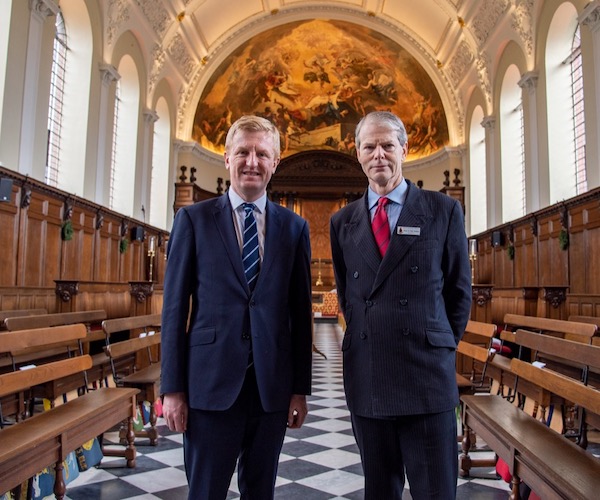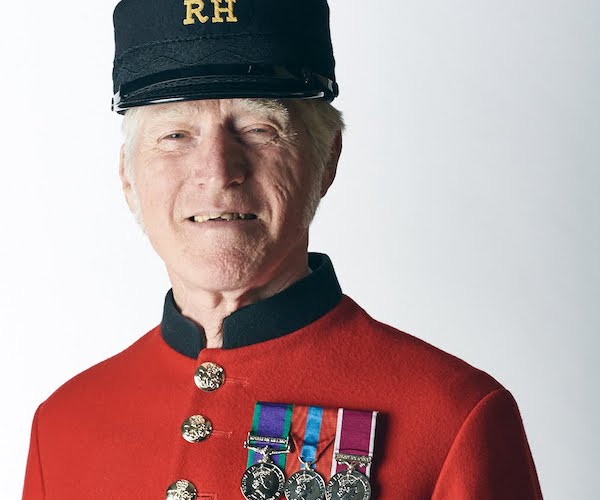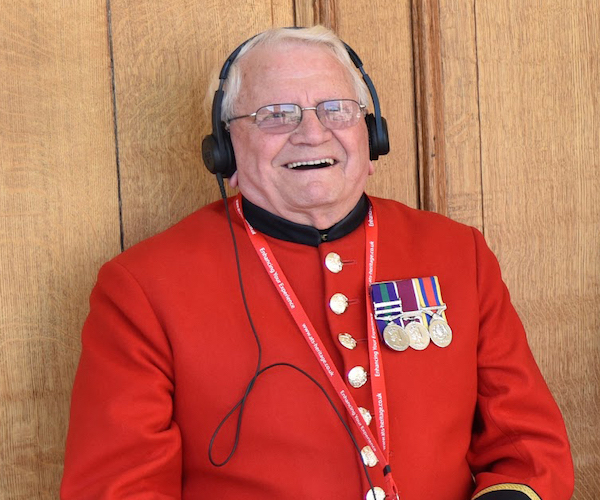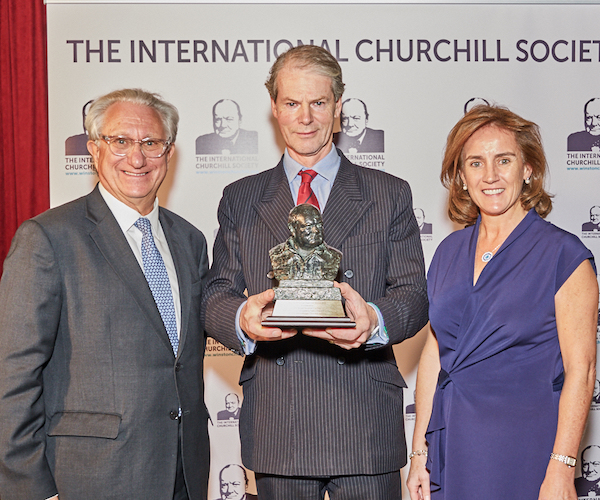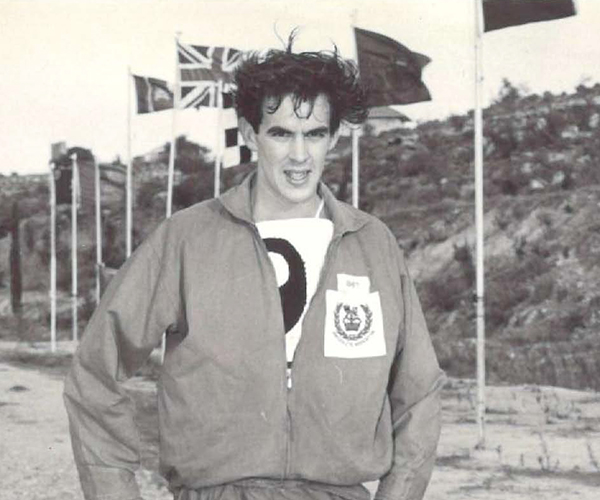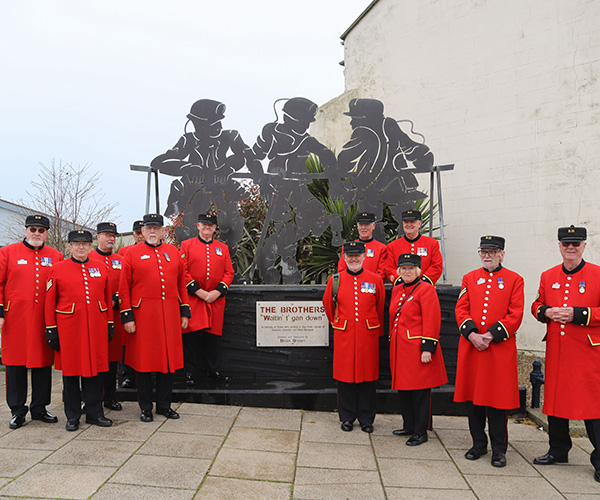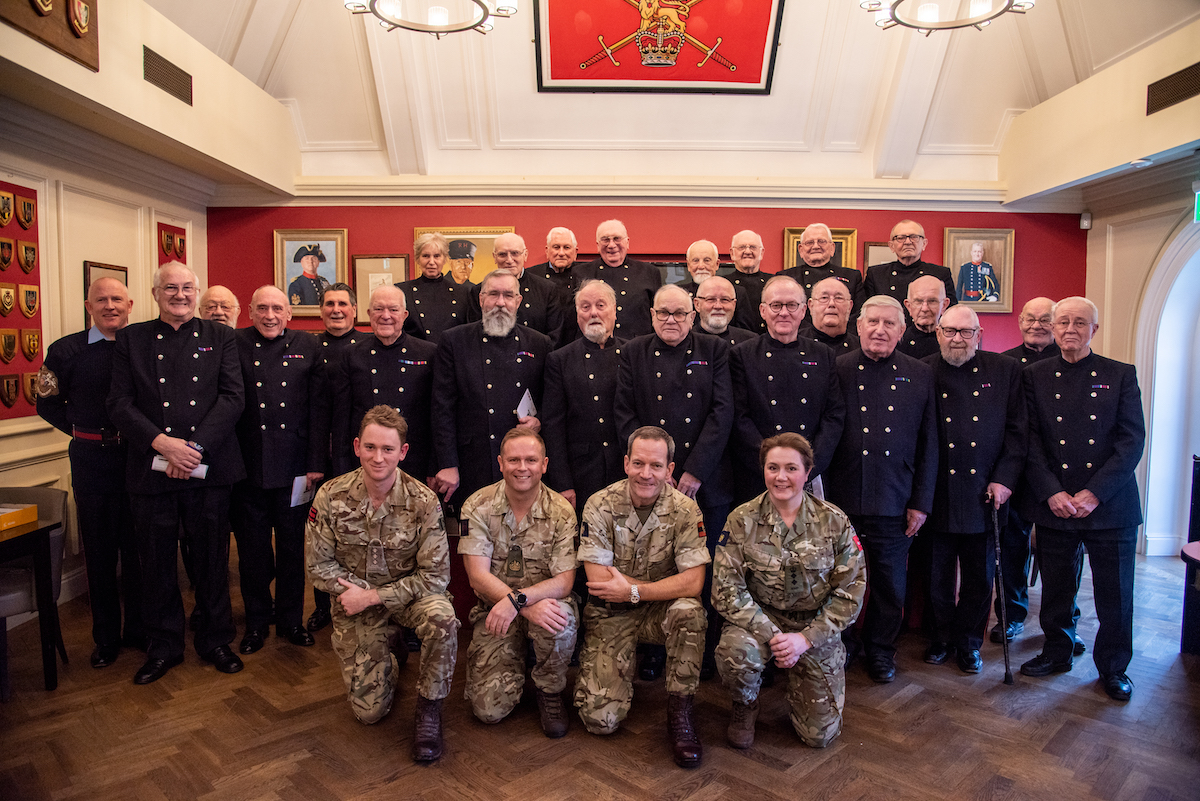
Lieutenant General Urch and his team on how the British Army is changing for the better
17th January 2020
On 16th January Lieutenant General Tyrone Urch and some of his team delivered a fascinating talk to a group of Chelsea Pensioners and staff members, including our Governor, General Sir Adrian Bradshaw.
Lieutenant General Urch began by explaining he has two ‘day jobs’. As Commander of Home Command – covering everything from recruitment and basic training to infrastructure and the safeguarding of young people – he heads up the Army’s support network. And ,as the Standing Joint Commander of UK Operations, he also oversees floods and fires, industrial action, fixed tasks such as supporting the police in counter-terrorism operations, Brexit-related operations and royal funerals.
A dramatic rise in Army recruitment
The Pensioners learned about the impressive rise in Army recruitment under the Lieutenant General, rising from about 55% at the end of last year to 96% today. With two and a half months to go, he was confident that the rate will rise to 100% – making it the first year in living memory that the Army has been fully recruited. The Lieutenant General explained;
“Everything about recruiting has changed and modernised, without lowering the standard of British soldier delivered to the field Army at the end of basic training.”
We learned that recruits today need more time. Many come from challenging backgrounds and need support to lose weight due to poor diet, as well as help with their confidence. As a result, a new four-week soldier development course, prior to basic training, has also been introduced – 95% of attendees go on to pass out of basic training successfully.
An “exceptional” new college for 17-year-olds has also been established at Harrogate. Although 35% of the recruits were excluded from school as no-hopers, 100% left a year later with GCSE English and 95% with Maths.
‘Snowflakes’ and confidence for life
Lietuenant General Urch went on to talk about the Army’s recruitment campaigns. He explained that the advert referring to the so-called ‘snowflake’ generation had not appealed to everyone:
“Some retired generals and veterans said the snowflake campaign was rubbish. That’s good, because it wasn’t designed for them, but for 16 to 24 year-olds – and it broke records.”
The Army’s latest campaign focuses on lifelong confidence – which is the key thing the Army gives this age group in the Lieutenant General’s view. So far, the ‘confidence for life’ campaign has been incredibly successful:
“Normally we have 300 applications a day. The first day this campaign launched we got 749 applications and 750 the next.”
Pensioners put questions to a panel
After Lieutenanat General Urch’s talk, a panel of soldiers joined him to answer the Pensioners’ questions.
Warrant Officer Class One Steve Parker is a Household Cavalryman and Command Corporal Major, HQ Command – he’s also the second most senior soldier in the Army.
Sarah Pringle-Smith has been in the Army for 23 years and is Assistant Head of the Military Police. The Lieutenant General commented on her “amazing career”.
Captain James Curry of the Royal Engineers – a Troop Commander and Adjutant – was introduced as being “at the sharp end, in the field”.
A Pensioner kicked off the questions by asking if a soldier today could expect a full career in the Army as, when he left in the 1980s, “there was no long-term future”.
Warrant Officer Steve Parker explained what had changed:
“There’s more education than ever now. More soldiers get degrees and there are career management officers who look after the men and women in their regiment. We develop people mentally as well as physically and we’ve changed the way we train, building the body to be resilient to injuries. All these things help soldiers to stay longer.”
Another Pensioner asked how the Army addresses soldiers acquiring trades and skills and then moving on. Captain Curry replied:
“If you invest in someone and they feel valued, they stay. It’s not a short-term investment, but lifelong learning. We train soldiers well enough to leave and treat them well enough to stay.”
Pensioner Arthur Currie described a recent visit to passing out at Pirbright and questioned the Army’s claim that it could take 16 days to recruit.
The Lieutenant General responded, saying that in the past recruiting had been crippled by taking so long. Changes to aspects including the medical process has speeded things up, making the quickest recruitment time as little as the 16 days quoted. However, he stressed the importance of flexibility:
“Not everyone wants to do it in 16 days – one guy took ages as he broke a leg and then took a gap year. It’s about choice for our people.”
Another Pensioner brought up the importance of considering families to soldier retention. Colonel Pringle-Smith explained how things were changing:
“Our ability to support families has significantly changed. The Army is better at engaging with garrison areas, developing infrastructure, engaging with the community and supporting soldiers’ choices.”
Further discussion covered topics including the positive contribution different groups could make to the Army. Lieutenant General Urch pointed out the value of 50 and 60-year-olds and former prisoners:
“Older people can bring experience to decision-making and category C offenders would make great soldiers. We wouldn’t have won Waterloo without prisoners!”
“The British Army is in rude health”
The audience were very positive about the event, commenting how interesting they found it and contributing their own memories and experiences. Volunteer Norah Tuck who was in the Army for five and a half years, said the talk was “fascinating” and commented that she was “very encouraged by how much recruiting the Army is doing.”
Pensioner and former Regimental Sergeant Major Arthur Currie reflected on the role of former offenders in the Army and shared his personal experience as a teenager:
“I attended my local magistrate and he said, ‘It’s getting near the time when I’ll be sending you to jail because this is the fourth time I’ve seen you in as many months. Have you thought about the Army?’ I said, ‘No, but if you let me off I will.’ He said, “Why don’t I believe you?” So he took me to the recruiting office on Monday and I was in Catterick on Friday. I signed up for 22 years – you got more money £5 and 5 shillings a week, a pension and a free haircut every week whether you needed it or not! I never looked back. The Army made me. I’m glad to see young people today getting the same. They’re not really criminals but bored and disaffected, from difficult backgrounds, and they need some structure.”
All in all, the talk made it clear that the British Army is in a good place, as the Lieutenant General concluded:
“I’ve never seen the morale of the British Army and the quality of young men and women as strong since I was 18. Recruitment will be 100%. Retention is still an issue and there aren’t enough women or ethnic minorities. It’s not perfect, but the British Army is in rude health.”

